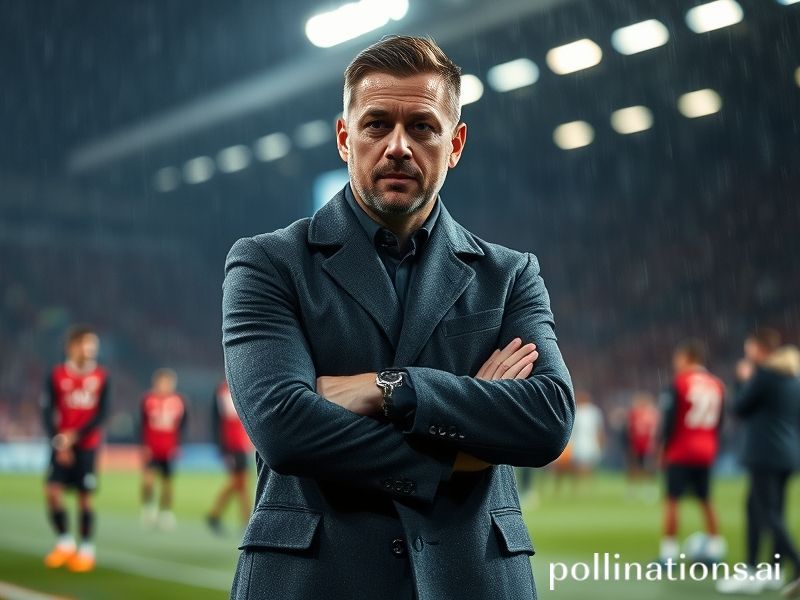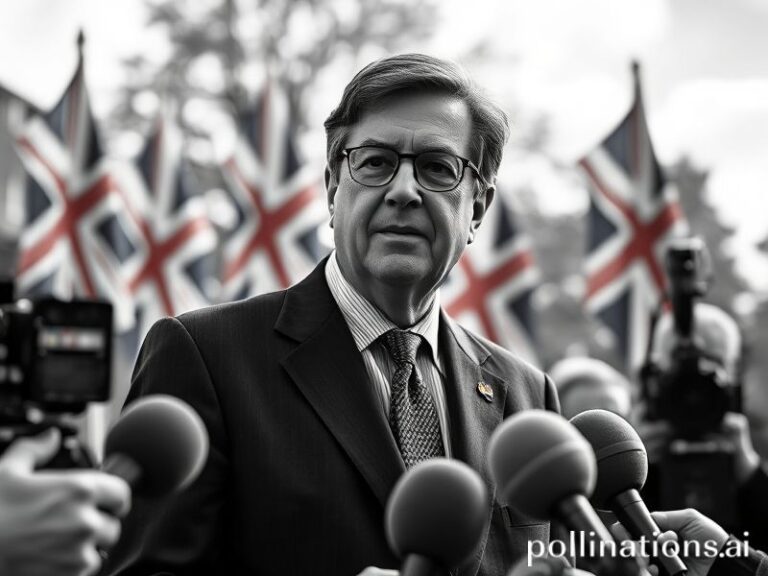Domenico Tedesco’s Belgian Experiment: Coaching Unity in the Age of Global Collapse
Domenico Tedesco and the Beautiful, Broken Game: A Dispatch from the Edge of Europa
We meet Mr. Tedesco in the only place that still makes sense—mid-table, mid-crisis, mid-pandemic hangover—where the Belgian national team has just handed him the keys to what optimists call a “golden generation” and pessimists call “eleven millionaires in matching deodorant adverts.” Tedesco, the son of Italian immigrants who landed in industrial Flanders like characters in a Calvino novel that never quite resolves, is now tasked with uniting a locker room whose internal borders are tighter than the EU’s external ones. His surname, Italian for “German,” already feels like a joke the universe couldn’t resist: a man whose very name is a geopolitical paradox now coaching a country that invented both the waffle and conditional surrender.
Let’s zoom out before we get sentimental. On the same Tuesday that the Belgian FA announced Tedesco’s appointment, the World Bank downgraded global growth—again—Elon Musk launched another rocket because boredom is expensive, and somewhere in the Horn of Africa the price of grain climbed high enough to make a Somali mother calculate which child eats tonight. Football, then, as ever, is the planet’s most lavish distraction: a high-definition fever dream sold to us while the planet quietly renegotiates the terms of existence. Tedesco becomes our unwitting ringmaster, juggling De Bruyne’s metatarsals and Lukaku’s mood swings while the rest of us refresh live-score apps between doomscrolling sessions about methane leaks and missing submersibles.
Globally, the hire is instructive. Belgium’s squad is the UN Security Council of footballing talent—if the permanent members occasionally forgot their lines and blamed the translator. You have Real Madrid’s Courtois glaring at Dortmund’s Meunier, while Napoli’s Osimhen—okay, he’s Nigerian, but play along—watches from the wings wondering why passports matter more than pace. Tedesco’s job is to turn that fragile coalition into something resembling choreography, a task akin to persuading Microsoft, Huawei, and a Moldovan startup to co-author a privacy policy. Failure will be measured not just in goals conceded but in think-pieces questioning whether multi-ethnic squads are “cohesive enough,” a euphemism editors still use when they can’t print “too many foreigners.”
Yet there is something almost heroic in the absurdity. Consider the man himself: a 37-year-old who looks like he still gets carded buying Chianti, whose playing career peaked somewhere between the Belgian third division and existential dread. He learned German tactics, Italian cunning, and Belgian pragmatism—an unholy trinity that produced a coaching style best described as “pressing with a literature degree.” Schalke fans once loved him for rescuing them from relegation, then hated him for finishing second, proof that gratitude has the half-life of a TikTok trend. At Spartak Moscow he discovered that Siberian winters and boardroom politics share the same windchill. Each exile added another layer of cosmopolitan scar tissue, the kind that makes a man shrug when asked if he prefers 4-2-3-1 or 3-4-2-1: “Whatever survives the group chat.”
What does the world learn? First, that soft power now comes in cleats. When Tedesco picks multilingual line-ups, European diplomats tweet thumbs-up emojis, as if defensive midfield were foreign policy. Second, that even in an age of super-clubs and petrodollar transfers, a national jersey still carries the weight of collective fantasy—an anachronism we cling to like paper currency after the apocalypse. And third, that the real victory may simply be keeping the circus on the road until the next crisis eclipses it. Should Belgium stumble in the Nations League, fans will demand a scapegoat; should they win the Euros, politicians will claim credit. Either way, the stadium lights will cut out at midnight, and somewhere offshore the shipping containers of tomorrow’s kits will keep sailing, indifferent to the score.
So here’s to Domenico Tedesco, conductor of a symphony whose sheet music is still being written by trolls on Reddit. May his subs be timely, his press conferences mercifully short, and may he remember that history rarely records who finished third in Group F—unless, of course, the simulation glitches and we all have to relive 2020 forever. In that case, gentlemen, please form an orderly queue for the vaccine and the VAR review. The world is watching, mostly on illegal streams.







